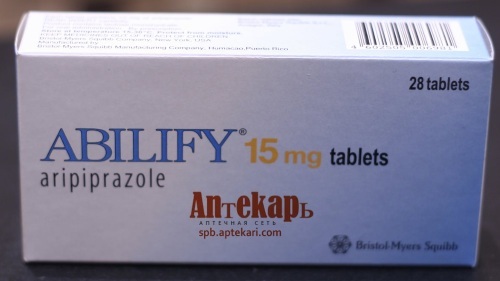Perception is called hallucinations. absent external stimulus as really existing. They arise at the level of hearing, vision and sensation. The reasons for their occurrence are different.
Record content:
- 1 Views
- 2 Stages and degrees
- 3 Symptoms
- 4 Reasons for the appearance
- 5 Diagnostics
- 6 When to see a doctor
- 7 Prevention
-
8 Treatment methods
-
8.1 Medications
- 8.1.1 Antipsychotics
- 8.1.2 Tranquilizers
- 8.1.3 Antidepressants
- 8.2 Traditional methods
- 8.3 Other methods
-
8.1 Medications
- 9 Possible complications
- 10 Video about hallucinations
Views
Hallucinations in which the patient hears voices are considered the most common. The causes of their occurrence are associated with mental disorders of a person, for example, schizophrenia. Visual hallucinations are associated with dementia and other neurological disorders.
Experts distinguish between the following types of auditory hallucinations:
| Hallucination type | Description |
| Audibility of voices | The patient can hear conversational dialogues, as if the audio broadcast of the program was turned on. Such manifestations of the disease are especially dangerous if voices give orders or prohibit something. They are called imperative hallucinations and note their negative impact on the life of the sick person and those around him. They can threaten the lives of people, including the patient himself. |
| Audibility of various noises | Noises can be in the form of incomprehensible crackling, whistling, ticking and other sounds. Such manifestations are less dangerous, but also require therapy. |
| Unclear sound of musical works | It can appear constantly or sporadically. |
| Hypnological phenomena of auditory deception | They occur, as a rule, during the period of the change in the phase of sleep and rest - before falling asleep or waking up |
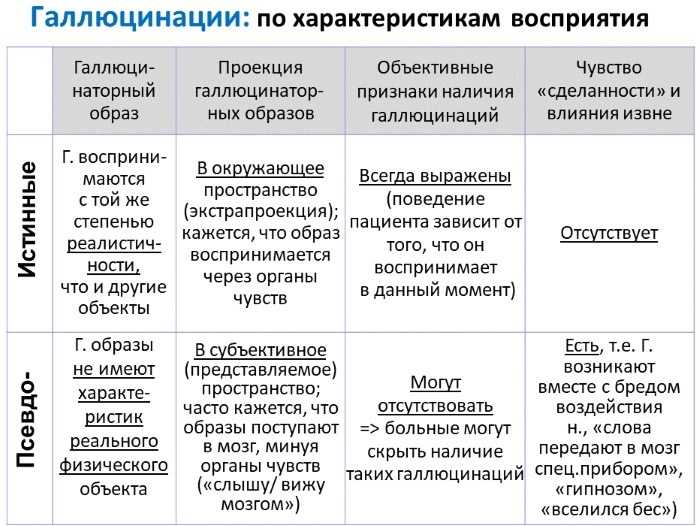
There are also verbal types of hallucinations.
Depending on the reasons for their occurrence, they are distinguished:
- commenting or evaluating. They assess the patient's actions and can be benevolent or negative. Both momentary actions and actions that have occurred a long time ago are evaluated;
- threatening. The patient begins to feel the threat of some forces to his security. He has a persecution mania and panic;
- imperative. This type of verbal hallucinogenic manifestations can be called dangerous for society and the person himself. Usually such voices give an order to do something. It can be suicide, deliberate refusal of food and medicine.
Sometimes voices give reasonable advice, and the patient turns to the doctor or other people for help, not realizing that he is in the phase of an acute mental disorder.
Stages and degrees
Depending on the duration of the disease and the severity of its course, experts distinguish the following stages of hallucinosis:
- Sharp. It usually lasts 2 weeks or less. Its main manifestations are considered to be high excitability and physical activity.
- Chronic. The stage can take several years. It is characterized by the patient hearing voices and implicit visual hallucinations in the head.
According to the degree of deception of feelings, the following forms of syndromes can be:
- verbal;
- Lermitte's visual syndrome;
- hallucinosis of Van Bogart;
- visual hallucinosis Bonnet;
- hallucinosis of the olfactory type named after Gobek;
- tactile.
Symptoms
The symptoms of hallucinations are varied, for example: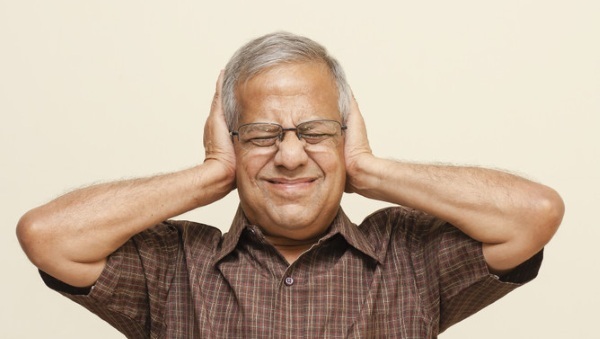
| A type | Manifestations |
| Imaginary hallucinations | The presence of imaginary visual and auditory hallucinations is associated with the intake of large amounts of alcohol and the development of delirium. At the same time, imaginary perceptions can be explicit and false. In the first case, the patient is completely sure of their reality. These voices firmly fit into everyday reality and are inseparable from the sounds that he hears every day in reality. These signs are typical for diseases such as psychosis, alcoholic disorder, traumatic or organic shock. |
| Pseudohallucinations | They are heard in the patient's head as sounds from nowhere, they are outsiders. They usually come during schizophrenia. The syndrome of a psychopathological nature is expressed in various and frequent hallucinations or delusions |
| Acute hallucinosis | It accompanies psychosis of an infectious or intoxication plan. He can go into a chronic stage against the background of malfunctions in the brain or negative development of vascular diseases. In chronic development, auditory or imaginary tactile illusory perceptions prevail. At the same time, the patients themselves behave normally, being critical of their condition and even maintaining their working capacity. |
| Dementia | It usually has long-term or short-term hallucinations, which sometimes appear frequently. However, in most cases, at the 1st stage, the intervals between them are quite large. |
As for the duration and frequency of symptoms, it depends on the severity of the problem and the area of the brain damage. The strength of the body's natural defenses has a significant impact on these factors.
In older people, such signs can be supplemented not only by sound and visual hallucinations, but also by gustatory and olfactory hallucinations. For example, paranoid sufferers often report food smells and tastes strange.
Reasons for the appearance
Auditory hallucinations (often associated with underlying medical conditions) develop against the background of the patient's pathologies in the form of:
- epilepsy;
- brain damage;
- encephalitis;
- schizophrenia;
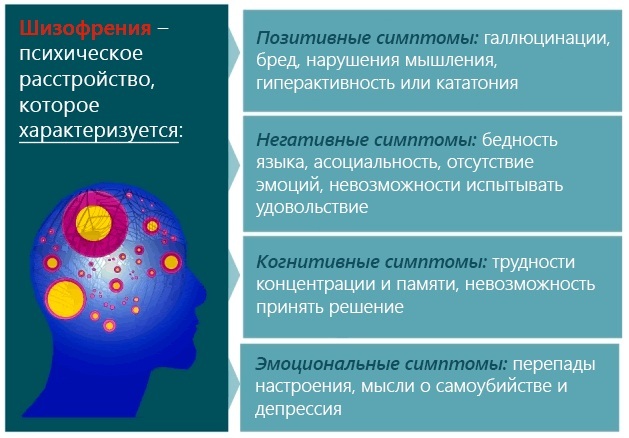
- infectious and somatic diseases in severe form;
- chronic alcohol dependence.
This is revealed when analyzing the symptoms and carrying out diagnostics of the body, which gives a complete clinical picture.
Hallucinations appear:
- as a result of poisoning with low-quality alcoholic beverages;
- after taking narcotic or psychostimulating drugs (special group medicines, LSD, cocaine);
- when taking medications of the M-anticholinergic spectrum (strong antidepressants).
With obvious visual hallucinations, the patient does not separate existing objects from images that seem to them.
Auditory visions are symptoms of brain malfunction associated with:
- schizophrenic disorders;
- seizures;
- alcohol intoxication or poisoning with other substances.
Feeling strange smells is also associated with schizophrenia. This disease causes a person to experience extremely unpleasant odors. Such manifestations also occur with defects in the brain - its temporal lobe. Herpes simplex virus-induced encephalitis, as well as seizures, are manifested by changes in imaginary taste sensations.
People who have undergone amputation of a certain organ often experience tactile hallucinations. Withdrawal symptoms can also be the cause of their appearance.
Bodily sensations can be in the form of an electric shock or a ruptured intestine. It could be an electric shock or a ruptured bowel. Such signs are characteristic of schizophrenia and encephalitis in a difficult stage.
Regardless of the factors and misperceptions, hallucinations can affect the patient in different ways. Most of them pass without emotions, with a neutral coloring of what is happening. Those who are sick relate to such visions calmly. However, in some patients, imaginary images are clear and negatively affect their emotional state.
According to scientists, at the moment, the pathology has not been sufficiently studied, and in order to understand the causes and consequences of such disorders, it is necessary to study them in detail.
Age is often the cause of this condition. In the second half of life, serious changes take place in the human body.
People who have crossed the age of 60 do not immediately become feeble-minded, but the likelihood of developing mental disorders increases. Seniors often experience mood swings, anxiety and fear of dying, which negatively affects the psychosomatic state.
Diagnostics
If you experience hallucinations, it is recommended to see a doctor and undergo a complete medical examination. After establishing the cause, a course of treatment is developed.
To rule out or confirm the presence of brain damage, the doctor performs computed tomography or magnetic resonance imaging. The MRI procedure makes it possible to quickly identify organic lesions of the parts of the brain that cause this condition.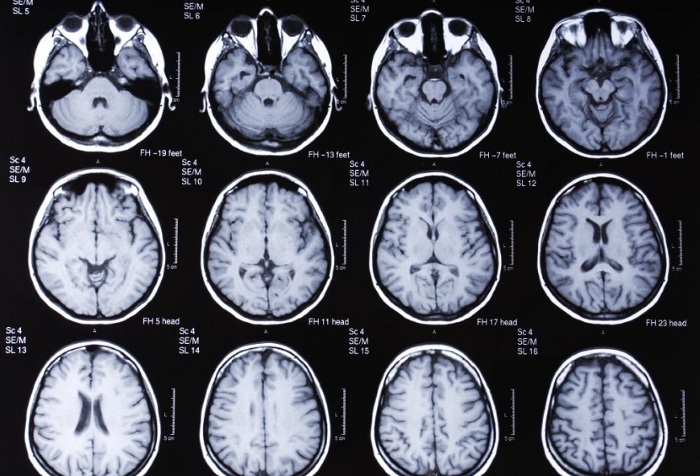
The detection of perception disorders at the 1st stage is determined by the method of questioning the patient by the doctor and observing him.
Everything that a specialist sees should show the seriousness of the problem:
- the patient's reaction to questions;
- facial expressions;
- speech;
- concentration on individual images.
For the treatment to be effective, it is better to diagnose it in a proven clinic specializing in human psychologists. The cost of a complete examination can be around US $ 10,000. rub. (3.5 thous. rub. - 1st consultation and procedures as prescribed by a doctor).
When to see a doctor
Auditory hallucinations, the causes of which are not always understood, at their first manifestation require a doctor's consultation, especially if they occur against the background of complex current diseases.
Common causes of this pathology are:
- mental disorders (schizophrenia, bipolar or post-traumatic stress disorder, depression);
- physiological factors affecting the functioning of the nervous system (stroke, brain tumors, dementia);
- infectious diseases (syphilis or tuberculosis);
- problems with the functioning of the liver, kidneys, or lungs;
- persistent headaches and migraines;
- disorders in the hormonal and metabolic background;
- problems with alcohol and drugs.
Prevention
The main task of preventing the development of hallucinosis is:
- identification and correct treatment of concomitant pathology of organic diseases;
- examination of the brain;

- refusal to take alcohol and psychotropic substances.
Treatment methods
Therapy of such a pathology as hallucinosis is determined by the course of the underlying human disease. To relieve symptoms in the form of hallucinations, various tranquilizers and antipsychotics are usually prescribed. In the most difficult cases, the patient is admitted to the psychotherapy department of the hospital.
The treatment of the problem is dealt with by such specialists as:
- psychiatrist;
- neurologist;
- expert in narcology;
- infectious disease specialist.
The choice of a specialist depends on the nature of the occurrence of hallucinations. Therapy occurs after identifying the causes of the formation of pathology and its symptoms.
Medications
Auditory hallucinations, the causes of which are mainly associated with psychological problems, can be treated with medication that:
- relieve symptoms of the disease;
- relieve excitement;
- completely eliminate seizures.
As a therapy, doctors prescribe:
- sedatives;
- antipsychotics;
- tranquilizers.
All this allows you to detoxify the body.
The total cost of treatment depends on:
- the severity of the problem;
- the duration of the treatment course;
- the body's susceptibility to drugs.
The main drugs are antipsychotic drugs, which have a positive effect on the metabolism of a substance such as dopamine. When diagnosed with an affective disorder, the patient additionally takes antidepressants (normotimics).
Such therapy maintains the normal state of a person, but does not have a full therapeutic effect. It does not affect the main cause of the malfunctioning of the brain.
Antipsychotics
If antipsychotics are included in the complex of medications for the treatment of hallucinations, the problem begins to be successfully solved. This group of substances belongs to the group of psychotropic drugs and is effective in eliminating neurological and psychological disorders. These drugs have many negative side effects, but they are necessary to eliminate an even more serious problem.
Experts are constantly working to create safer drugs of this type. Today, new drugs have appeared that help get rid of hallucinations and at the same time relax muscle tension, without greatly affecting a person's ability to think sanely. They also have a slight hypnotic effect.
Popular modern drugs in this series are:
| A drug | Description |
| Abilify | It is used in combination with antidepressants for:
When receiving, the patient must remember about the increased anxiety that the remedy causes. As a rule, in schizophrenia, 10-15 mg of the drug per day is prescribed. For the relief of bipolar disorders, the dose may be 15-30 mg per day. The course of admission lasts from 1 to 3 months. Contraindications for such therapy can be the age of up to 16 years, as well as individual intolerance to the substances that make up the composition. In exceptional cases, the drug is prescribed to people with problems with the cardiovascular system. When taking the medicine, you may feel:
|
| Quetiapine | The scheme of its reception is quite simple:
In the future, the dosage may vary. Elderly people initially take 25 mg per day. In the future, it increases daily by 25 mg daily. This scheme is used in the treatment of patients with renal failure. The drug is contraindicated for people under 18 years of age and women during lactation. The course is selected according to individual indications. Of the side symptoms, they note:
|
| Eteperazine | This medicine should not be used:
The drug is taken at 10 mg every day. If necessary, the dosage is increased by the doctor to 40 mg daily. A few days after you start taking the medication, the amount taken may increase to 80 mg. The maximum course of admission is 4 months. Reception may be accompanied by such side symptoms as:
|
Tranquilizers
Tranquilizers have a beneficial, sedative effect.
Taking such drugs reduces:
- anxiety;
- panic;
- depression;
- the likelihood of hallucinations.
They are capable of relieving stress in the brain without much influence on the work of the internal systems of the body. Tranquilizers are prescribed when such a pathology is associated with an anxious state of a person.
The following drugs are common:
| A drug | Description |
| Gidazepam | It does not cause drowsiness, so it is usually taken during the day. The dosage is 0.02-0.05 g three times a day. The duration of admission depends on the patient's condition and can last up to 4 months. The medicine is contraindicated for:
Side effects may include:
The cost of packaging is about 300 rubles. |
| Grandaxin | Shown at:
It is taken at 5 mg per day. The course of treatment should not exceed 2 months. Itching and upset stools are possible. Prohibited in cases:
The cost of packaging is about 800 rubles. |
Antidepressants
They actively:
- suppress the manifestations of depression;
- reduce the severity of mental disorders, autonomic disorders;
- restore the lost connection with real life.
The most significant among them are:
| A drug | Description |
| Amitriptyline | The remedy is recommended for:
Side properties of the remedy are:
It is recommended to take 25 mg at bedtime for 5 days. In this case, the dosage is increased to 200 mg, and in especially severe cases - up to 300 mg. The cost of the drug is about 30 rubles. |
| Paroxetine | A new generation drug that effectively relieves anxiety. It is contraindicated:
It is taken once a day with food, 20 mg. Duration of admission is 2-3 weeks. The dosage cannot be more than 50 mg. Upon reception, it is possible that:
Packing cost - from 30 rubles. |
It is strictly forbidden to use these drugs without a doctor's prescription. Treatment is carried out under the constant supervision of a specialist. This is the only way to get rid of the problem without harming your own health.
Traditional methods
Auditory hallucinations (the reasons for their occurrence lead to a violation of the objective perception of the surrounding world), manifested in the form of incomprehensible sounds, noises and voices, the patient cannot control and remove on one's own.
Using folk remedies can only aggravate the situation. The best way out in this case for relatives and friends of the patient is to monitor his condition and follow the doctor's prescriptions.
Other methods
In addition to drug treatment, modern medicine offers people with similar problems other methods of treatment. One of them is electroshock therapy. Its use will reduce the symptoms caused by schizophrenia, depression and other mental disorders. As a rule, this is done under stationary conditions.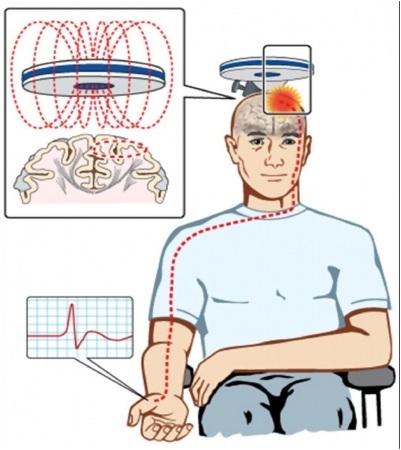
Also, specialists use the TMS procedure - transcranial magnetic stimulation. It is a biological treatment for hearing hallucinations. It has a beneficial effect on the neural activity of the brain and reduces the intensity of hallucinogenic manifestations.
Cognitive therapy is one of the psychological treatments for these problems. It allows you to reduce the frequency and duration
hallucinations, increase the patient's resistance and reduce their consequences.
Possible complications
If you do not carry out any treatment for hallucinatory manifestations, they will appear more often and affect the mental state of a person. In the end, the condition will go into a chronic stage and the patient will no longer distinguish between reality and a phantom, taking illusion for reality. It will be difficult to cure it even with strong means in stationary conditions.
Disorder of perception of reality in the form of visual and auditory hallucinations occur due to complex mental illnesses. To get rid of them, you need to carry out complex therapy aimed at reducing the symptoms of major diseases. However, you must first undergo an examination and allow the doctor to prescribe the correct therapy.
Video about hallucinations
Symptoms, treatment and causes of hallucinations:

